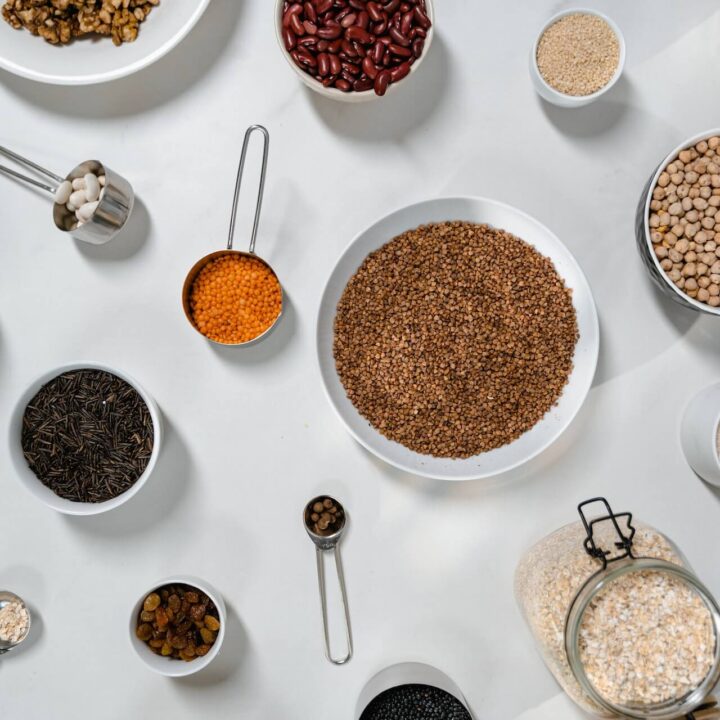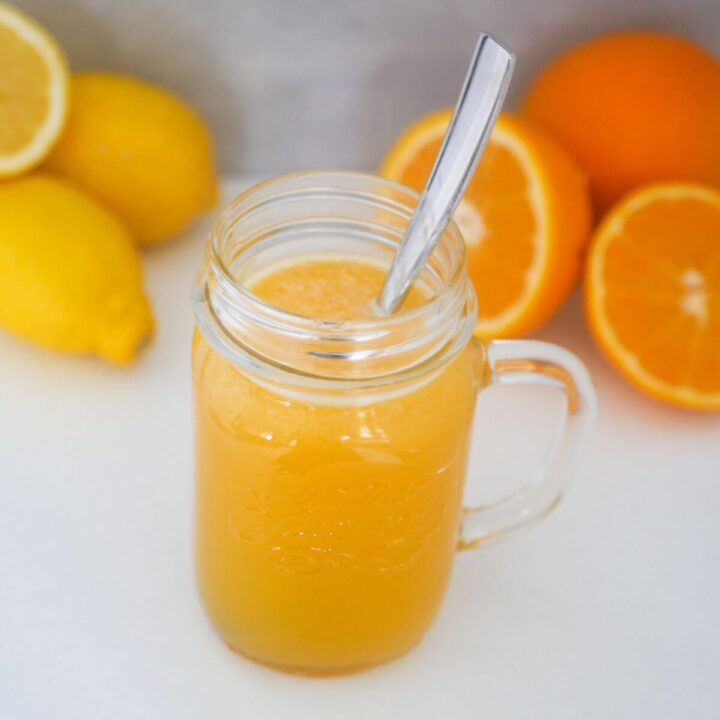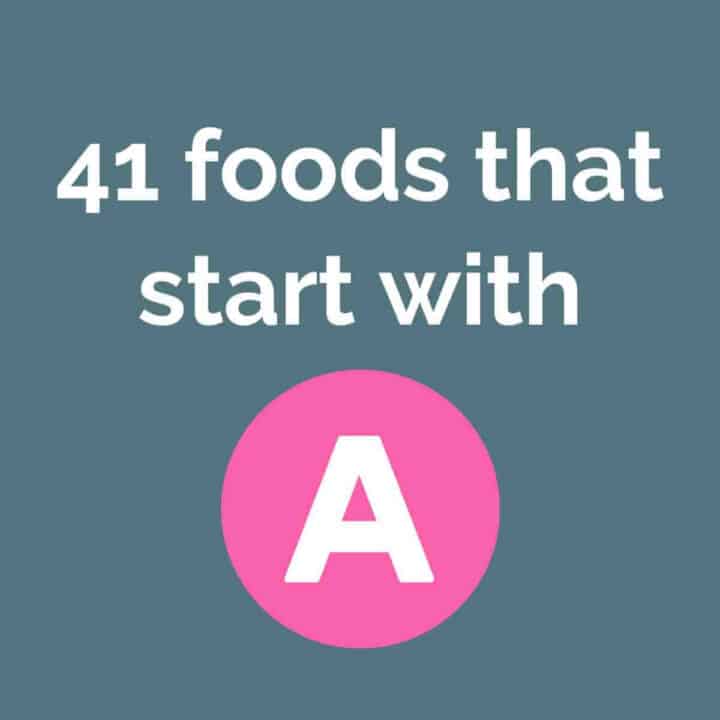
Seems like every recipe you find has either a "gluten-free" or "contains-gluten" mark. So clearly people think gluten is pretty important. Meanwhile, the information you find online is pretty contradictory and you can easily find yourself circling around and around and somehow right back at the beginning not knowing if anything you read is actually important for YOU.
The truth is that gluten can be important, but usually only for certain people.
So let's start at the beginning.
What Is Gluten?
Gluten is a protein (or rather a family of proteins) found in the following grains: wheat, rye, and barley. For years it was thought that oats also contain gluten. There is still disagreement on the subject, but in any case, they are often contaminated with gluten from being produced in the same place as other grains containing gluten. It's also important to note that grains of wheat-origin (like spelt, couscous, and bulgur) also contain gluten.
The two main proteins found in gluten are called glutenin and gliadin with gliadin being responsible for the most negative effects of gluten.
Why Do People Go Gluten-Free?
Avoiding gluten has become popular in the last couple of years. Especially with a lot of famous people promoting a gluten-free diet and emphasizing the negative effects of gluten and how much better they feel after removing it from their diet.
This is probably the case for some people but for others, it physiologically doesn't make much difference.
So why is it beneficial to remove gluten for some people and not for others?
Gluten-Related Diseases
Celiac Disease
Celiac disease is the most common "gluten disease". It's an inability of the body (specifically the small intestine) to absorb and digest gluten. It's actually an autoimmune disease which means that the body treats gluten as an "invader" and reacts by trying to get rid of it.
This means that the immune system "attacks" the gluten, but since it is "stuck" in the small intestine it can also do collateral damage, causing all sorts of different responses.
Some effects of celiac disease include:
- Bloating
- Stomach pain
- Diarrhea
- Nausea
- Fatigue
The response is not the same in everyone though. Some may show only a few light symptoms and some might have all of them severely. But having only slight symptoms doesn't necessarily mean that the small intestine isn't being damaged.
So if you have any doubt that you or your child has celiac disease, a small intestine biopsy can be done to provide certainty. Blood tests (most common being tTG-IgA test) are a less invasive way to test for intolerance to gluten but the biopsy is the only to test for celiac with 100% certainty.
Unfortunately, there is no treatment for celiac disease other than a gluten-free diet. That means avoiding all products that have gluten and any products that might be contaminated with gluten. So reading food labels at all times is a must.
Gluten Insensitivity
Gluten insensitivity is another kind of inability to absorb or digest gluten but is different from celiac disease. While the symptoms may be similar, in this case, it is not an autoimmune disease.
If celiac or other immune response-related allergies have been ruled out, a gluten insensitivity is the most likely conclusion. Particularly if they have a positive tTG-IgA test.
Nevertheless, some people seem to view non-celiac gluten intolerances as a made-up diagnosis, fueled by media hype. However, people can present allergic reactions to all kinds of different things, and if avoiding certain foods makes you feel better (and doesn't cause any nutrient imbalances) then there's no harm in a gluten-free diet.
Gluten Ataxia
This is an autoimmune disease where digestion of gluten can cause impairment in the brain. This can lead to tremors and different neurological symptoms such as walking, talking, and balance difficulties.
Research is still being conducted into this disease and a lot of doctors are hesitant to diagnose it, but if a person shows the mentioned symptoms and tests positive to gluten intolerance blood tests, the removal of gluten foods can only be beneficial.
Wheat Allergy
Wheat allergy is an immunological response to the intake of wheat (most likely because of the gluten). Apart from eating wheat, it can also be caused by inhalation or when a person simply comes into contact with wheat.
Wheat allergy symptoms can be similar to those of celiac disease and gluten insensitivity but are often more severe and include difficulties breathing, swelling of the mouth and tongue and anaphylaxis.
Again, the only effective long-term treatment is avoiding gluten foods.
Dermatitis Herpetiformis
This is a skin condition that causes rashes, itchiness, and blistering. It's directly caused by celiac disease where the body's attempt to eliminate gluten as an invader ends up causing some clogs to small blood vessels, particularly of the skin.
The condition is often misdiagnosed as atopic or contact dermatitis as well as dyshidrosis.
The overall effective treatment (apart from the symptomatic treatment of rashes) is a gluten-free diet.
What Does It Mean To Have A Gluten-Free Diet?
A diet that doesn't contain gluten. Simple as that, right? Well, not exactly.
A lot of products might not directly contain gluten grains (wheat, rye, barley) but can be contaminated with them or contain traces. And that's why reading labels is really important for people with gluten conditions.
Food Containing Gluten
- Wheat
- Bulgur
- Couscous
- Spelt
- Barley
- Rye
- Foods containing gluten grains: bread, pasta, cereal, cookies, cakes, pastries, beer
Gluten-free food
- Grains: oats (most likely), rice, corn, quinoa, millet, buckwheat, amaranth
- Meat
- Milk and dairy products
- Fish and seafood
- Nuts and seeds
- Beans and legumes
- Fruits and vegetables
- Oils and fats
But with prepackaged food on this list, always check the nutritional label to see if there are any possibilities of gluten contamination or added wheat.
Final Note
So who should really avoid gluten?
It's really only necessary if you have a health condition that includeS some kind of sensitivity or intolerance to gluten. For the majority of other people, eating gluten and gluten products is perfectly fine.
However, by avoiding gluten, you might find that you end up cutting out a lot of refined wheat, added sugar, and processed carbs in general. So if someone tells you they have gone gluten-free and feel so much better, it might not be because of the gluten!





Comments
No Comments